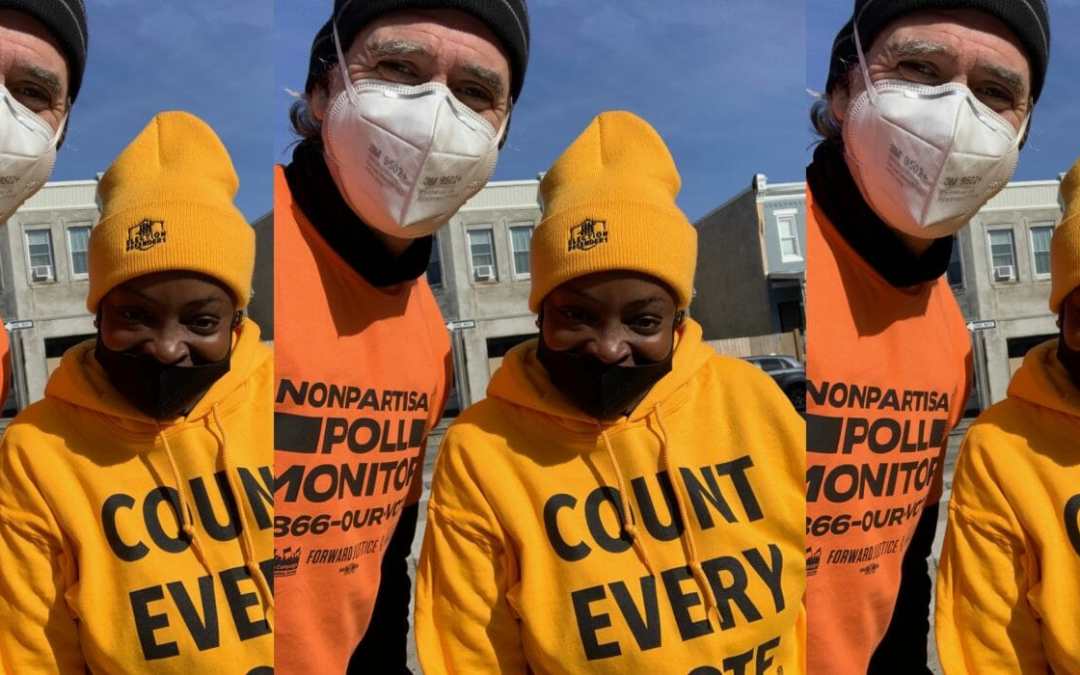After Boosting Low-Income Voter Turnout, Poor People’s Campaign Mobilizes for Covid Relief
By
Sarah Anderson
Posted:
|
Social Insurance, Earned Benefits, & Safety Net
By Sarah Anderson & Margot Rathke, originally published on Inequality.org.

While higher-income voters swung further towards Donald Trump compared to four years ago, increased support from poor and low-income voters helped push Joe Biden over the top.
According to early polls, those with household incomes of less than $50,000 in 2019 voted for Biden by an 11.5-point margin (55 to 43), compared to an 8.2-point Democratic margin in 2016 (50 to 42).
This helped overcome Trump’s gains among households with income above $100,000 from 45 percent in 2016 to just over half in this year’s election.
At least six million more people in households with income below $50,000 voted in 2020 compared to 2016.
Many organizations across the country deserve credit for fighting voter suppression and boosting turnout among poor and low-income voters.
For example, the Poor People’s Campaign: A National Call for Moral Revival, along with Forward Justice and the NAACP Legal Defense Fund, trained hundreds of poll monitors in 10 states: Alabama, Georgia, Kentucky, Louisiana, Michigan, Mississippi, North Carolina, Pennsylvania, South Carolina, and Texas.

A nonpartisan poll monitor in Baton Rouge, Louisiana.
To protect people from intimidation and voter suppression, these nonpartisan poll monitors spread out across 100 polling sites, including in some low-income counties that had not had such monitors for decades.
In the weeks leading up to the election, the Poor People’s Campaign had contacted over 2.3 million poor and low-income people, most of them in battleground states, to encourage them to vote. More than 400,000, or about 20 percent of those contacted, voted early.
For those who voted in person on election day, poll monitors played a critical role in addressing issues such as long lines, voter intimidation, voting machine malfunctions, lack of access and appropriate signage, changed polling locations without appropriate notice, Covid-19 concerns, misinformation, polling site understaffing, and voter registration problems.

Nonpartisan poll monitors in Jefferson County, Kentucky.
According to the Poor People’s Campaign, poll monitors in their 10 target states successfully advocated for more than 20 polling sites to extend their hours due to late openings or other disruptions to ensure voting access. In others, the monitors worked effectively with elections officials to remove people engaging in voter intimidation (including armed individuals at majority Black voting locations) to protect the safety of voters and the sanctity of the vote.
In key battleground states, such as Michigan, poor and low-income voters showed up in large numbers in support of Biden. According to preliminary data from the Associated Press, 54 percent of Michiganders in households with income of $50,000 or less voted the Biden-Harris ticket. Biden wound up winning that state with 50.6 percent of the vote.

A nonpartisan poll monitor in Benton Harbor, Michigan.
Rev. Dr. Liz Theoharis, co-chair of the Poor People’s Campaign, pointed to the success of Florida’s ballot initiative to raise the minimum wage to $15 as another sign of the power of low-income voters and the broad appeal of a moral policy agenda to reduce poverty and inequality. More Floridians voted to raise the minimum wage than voted for either Biden or Trump, she noted.
Winning that agenda will, of course, take much more than an election. And the Poor People’s Campaign and other progressive organizations are not taking a pause in their fight against the injustices that have been holding our country back since long before 2020.
“People did not turn out in record numbers in the midst of a pandemic to vote for a return to normal,” Poor People’s Campaign co-chair Rev. Dr. William J. Barber II, said in a statement. “We have elected Biden and Harris to use the power of government to lift up those who have been battered by Covid-19, battered by poverty, and battered by years of Republican extremism.”
The Poor People’s Campaign is already working to mobilize their members in 45 states to continue to raise up the key issues facing poor people. This will include caravans in these states on November 16 to demand a just relief package in the face of the Covid health and economic crises.
“We can celebrate now for a moment,” Barber said. “But we must go to work and make sure that people can soon feel that their votes will result in policy change.”
--
Sarah Anderson directs the Global Economy Project and co-edits Inequality.org at the Institute for Policy Studies. Margot Rathke is an IPS Next Leader.